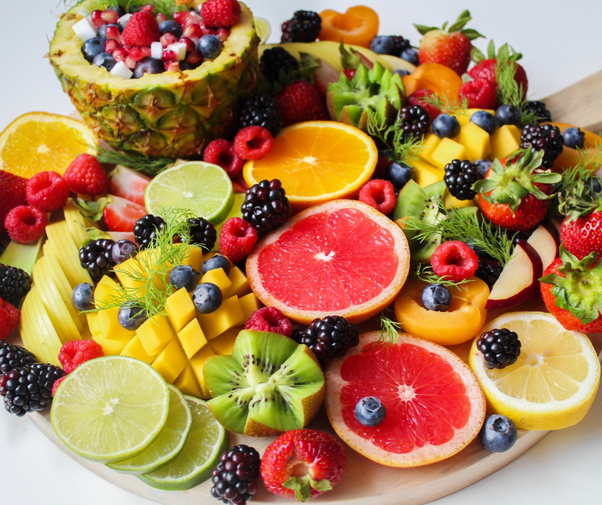Latest Top 10 Fruits Are Healthiest to Eat, According to Nutritionists
If anything, fresh vegetables is something that we could all use a bit more of! This is due to the numerous vitamins, minerals, and antioxidants that fruits and vegetables contain, which support our bodies’ overall health. According to nutrition consultant Jaclyn London, R.D.
host of the podcast The Business of Wellness, and author of Dressing on the Side (& Other Diet Myths Debunked), “Additionally, including more fruit in your everyday meals and snacks is one of my top tips for making more nutritious food choices that will ultimately contribute to good overall health, weight maintenance, and healthy weight loss if you’re seeking Fruits it.
Eating Fruits the rainbow every day is a simple approach to improve your fruit and vegetable intake. Green, yellow, orange, crimson, and purple pigments can be used to describe different types of fruit. “A fun and easy way to make sure you’re eating a variety is to have a fruit type that fits each color scheme,” advises London.
Fruit is a tasty and nourishing food, no matter how it’s cut. Fruits Take stock of how many of these nutritious fruits you currently eat, and get inspired to try some new ones!
1 Black Elderberry
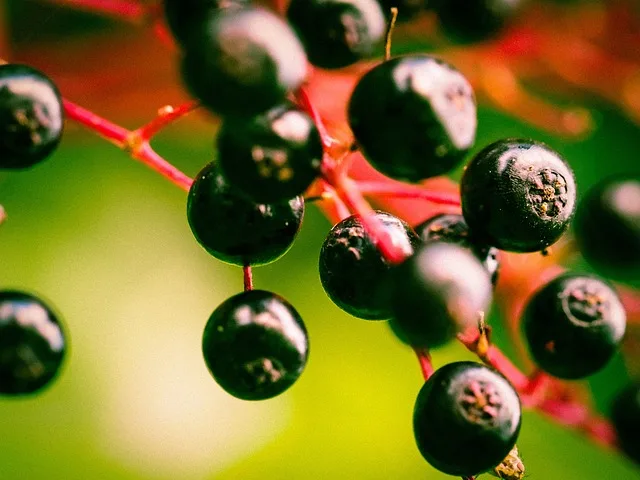
This is the base for your delectable, tart-sweet elderberry syrup; the fruit itself tastes delicious both on its own and when reduced to a compote or jam. “Black elderberry bushes are very high in the substances known as an pigment-lending botanical compounds that support the brain and heart, as well as the defense system,” Anderson-Haynes said.
2 Apricot
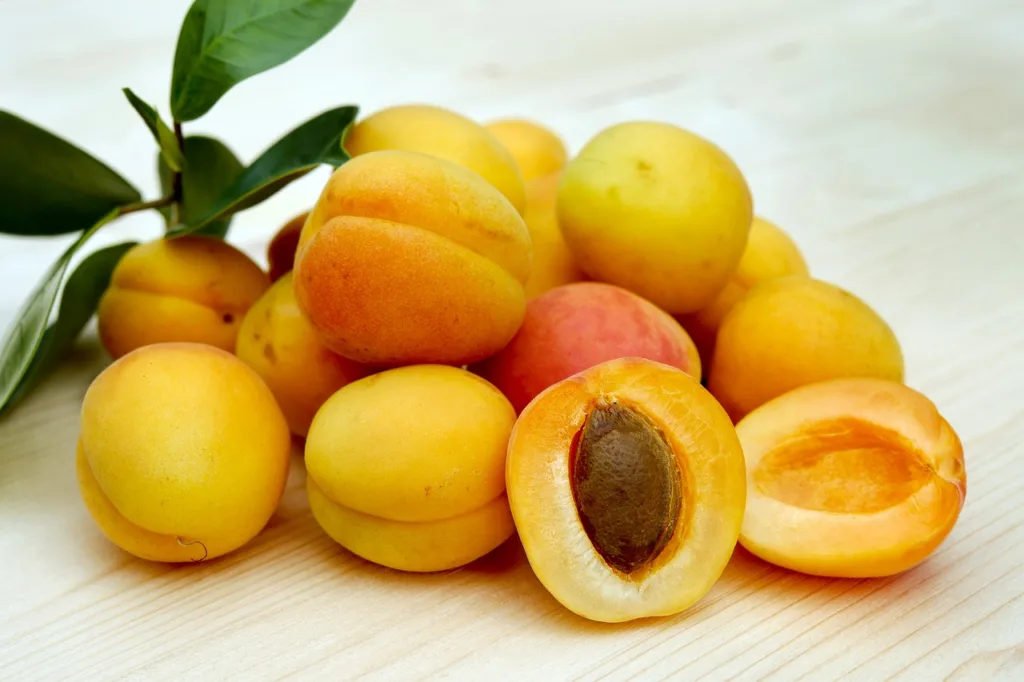
This tart stone fruit is also available in fresh form at your local farmers market or supermarket; even if you may be more comfy with the dried version, don’t miss it! Lutein, vitamin E, and beta-carotene—a plant molecule that our body transforms into vitamin A—are among the elements that are abundant in apricots and are beneficial to eye health.
3 Watermelon
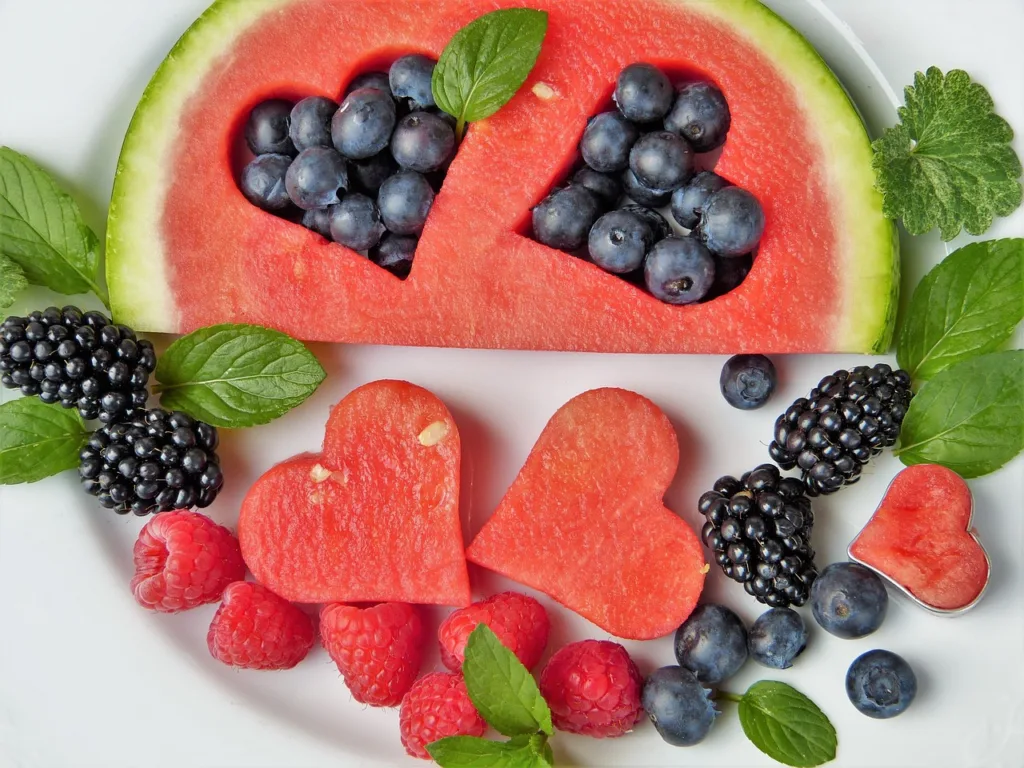
A wonderful option for staying hydrated is watermelon, which contains 92% water. Drinking water-rich snacks like watermelon can help you prevent mild dehydration that can cause headaches, as food makes up around 20% of your fluid intake, according to London. The additional potassium and magnesium that watermelon contains assist regulate fluid levels and counteract excess salt in your diet by acting as electrolytes. This makes watermelon an even more effective hydration aid. For a refreshing dessert, grill it or toss it in a salad of feta and mint.
4 Kiwis
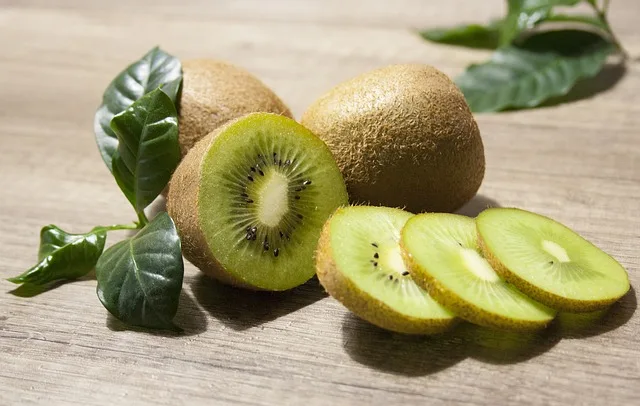
Kiwi fruit is a great source of antioxidants, potassium, vitamin C, and B vitamins. It can also help you relax because it contains folate, magnesium, and B vitamins. Also, kiwi consumption prior to bedtime may improve sleep, according to some research! Scoop some out for a refreshing side dish or mix some into a slaw.
5 Strawberries
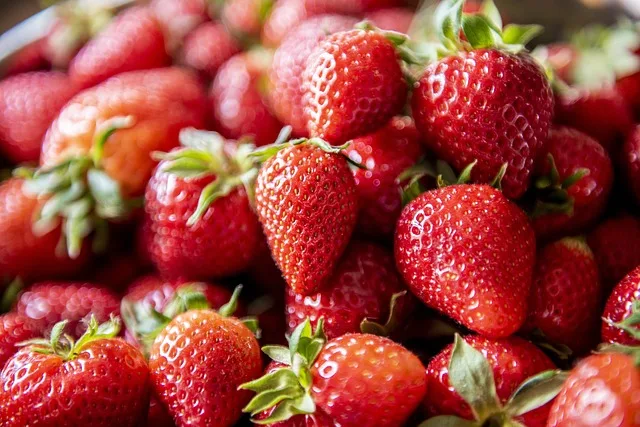
Antioxidants, especially vitamin C, abound in strawberries. 1500% of your daily value can be found in just one cup of halved strawberries. You can get the most flavor and satiety for the fewest calories in this same meal, which also has up to 9 grams of fiber and 80 calories. Have fun creating amazing desserts with their sweetness!
6 Figs
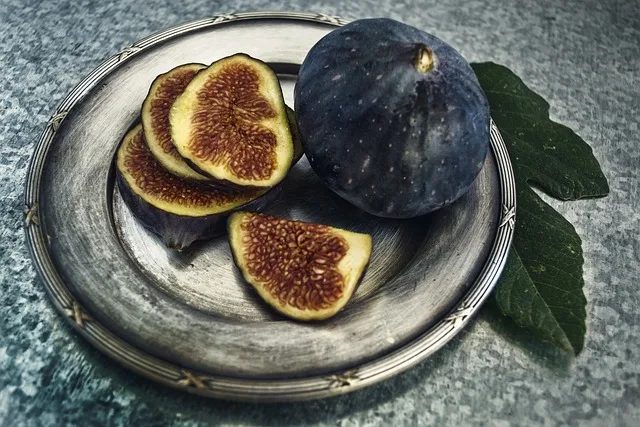
Because they contain a substantial amount of sugar, figs are best consumed in moderation even though they are a rich source of fiber. Tastes great as an appetizer, dessert, or elegant complement to a cheese plate.
7 Avocados
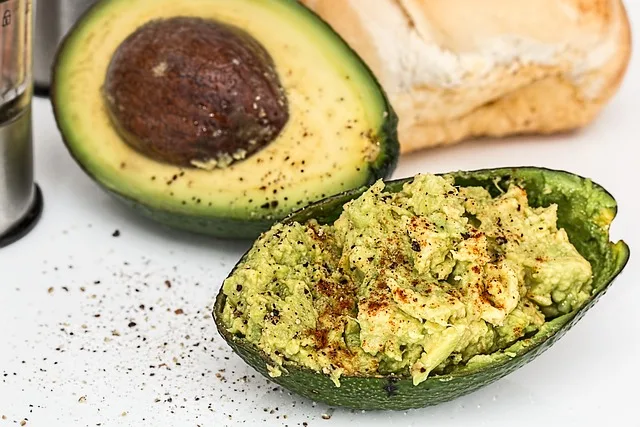
The low sugar level of avocados makes them a special fruit—yes, that’s right, a fruit. Together with magnesium, a vital element connected to both neurological and muscular function, it also contains heart-healthy fatty acids. Though you are probably well-versed in avocado toast, have you ever tried incorporating avocado into smoothies?
8 Blackberries
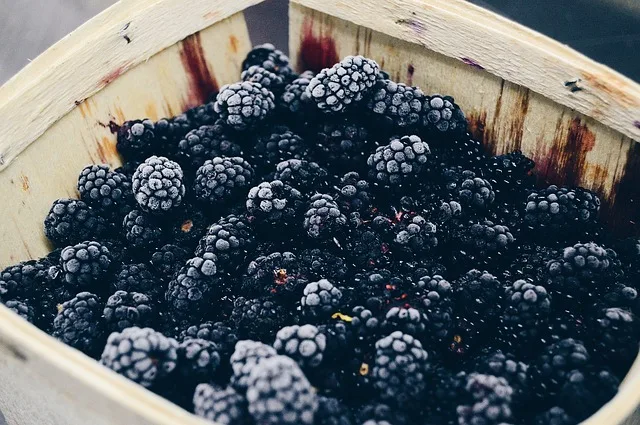
Nutrient-dense, fulfilling, and sweet to the extreme, blackberries make the ideal snack found in nature. Half of your daily requirement of vitamin C can be met by drinking one cup. They also include manganese and vitamin K in good amounts. Our preferred method of consuming berries of any kind? To increase fiber, antioxidants, and reduce sugar in PB&Js, replace jam with them.
9 Cantaloupe
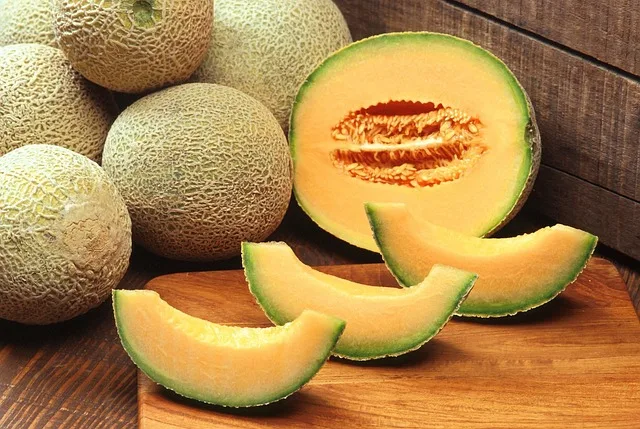
The potassium, vitamin C, and folate contents of cantaloupe are high. Melon contains flavonoids that suppress inflammation, stabilize blood sugar, and strengthen the immune system. Water-filled cantaloupe also provides an additional boost to hydration. Canneloupe and cucumber combine to form a refreshing salad that is garnished with oats for crunch!
10 Cherries
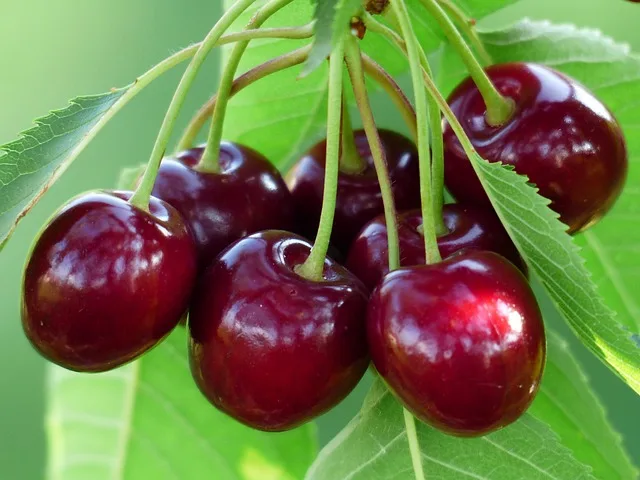
Stressed out? Take a few cherries in your palm. Quercetin, a form of antioxidant associated with fostering feelings of serenity, is one of the many antioxidant advantages that these small stone fruits possess, according to London.
Fruits Eating at least four to five courses per day has been linked to improved mood, lowered risk of heart disease, obesity, and type 2 diabetes, and reduced risk of inflammation. As to a recent meta-analysis, eating fruit can also reduce your chance of mortality overall. Fruits Because fruit contains fiber and a high water content as well as electrolytes that regulate fluids, it also helps with strong immunity, energy, optimum hydration, and healthy digestion. However just 10% of Americans consume enough fruit, defined as 1½ to 2 cups per day, by the Centers for the Control and Prevention of Diseases (CDC).
